Buy Evertor : Everolimus 5 Mg Tablets Online
$151.16
Brand Name: Evertor
Generic Name: Everolimus
Manufacturer: Biocon Pharma Ltd.
Strength: 5 mg
Dosage Form: Tablet
Packaging: Pack of 10 Tablets
Prescription Required: Yes
Evertor is a brand name for the drug Everolimus 5 mg tablets, which is an immunosuppressive and anticancer medication. It is a white, round tablet, and is available in blister packs.
Composition:
Each Evertor tablet contains 5 mg of Everolimus as the active ingredient, along with lactose monohydrate, hypromellose, crospovidone, magnesium stearate, and microcrystalline cellulose.
Uses:
Evertor is primarily used for the treatment of advanced renal cell carcinoma (a type of kidney cancer). It is also indicated for the treatment of advanced breast cancer, pancreatic neuroendocrine tumors, and subependymal giant cell astrocytoma (a type of brain tumor).
Usage and Dosage:
Evertor should be administered only under the supervision of a qualified healthcare professional who is well-versed in the use of immunosuppressive and anticancer drugs. The recommended dosage typically depends on the patient’s body weight, medical history, and other relevant factors.
For advanced renal cell carcinoma, the recommended dose of Evertor is 10 mg orally once daily, taken at the same time every day. The treatment may continue until disease progression or unacceptable toxicity occurs.
For advanced breast cancer, the recommended dose of Evertor is 10 mg orally once daily, in combination with exemestane (a hormone therapy drug). The treatment may continue until disease progression or unacceptable toxicity occurs.
For pancreatic neuroendocrine tumors, the recommended dose of Evertor is 10 mg orally once daily. The treatment may continue until disease progression or unacceptable toxicity occurs.
For subependymal giant cell astrocytoma, the recommended dose of Evertor is 4.5 mg/m2 orally once daily. The treatment may continue until disease progression or unacceptable toxicity occurs.
Storage Conditions:
Evertor should be stored at room temperature (15-25°C or 59-77°F) in its original container until use. Prolonged exposure to light should be avoided. Unused portions of the blisterpack should not be saved for future use.
Mechanism of Action:
Evertor works by inhibiting an enzyme called mammalian target of rapamycin (mTOR) that controls cell growth and proliferation. By inhibiting mTOR, Evertor prevents cancer cells from growing and dividing. It also has immunosuppressive properties that can prevent organ transplant rejection.
Contraindications:
Evertor is contraindicated in patients with a known hypersensitivity to Everolimus or any of the other ingredients in the formulation. It should not be used in pregnant or breastfeeding women, as it may cause harm to the fetus or newborn. Evertor should also be avoided by patients with liver, lung, or heart problems, and those who have had an organ transplant.
Interactions:
Evertor may interact with other medicines and supplements, causing adverse effects. Patients must inform their doctor if they are taking any prescription or over-the-counter medicines, herbal remedies, or dietary supplements before starting treatment with Evertor.
Adverse Reactions:
The common side effects observed with Evertor include fatigue, nausea, diarrhea, mouth sores, loss of appetite, weight loss, rash, and peripheral edema. Serious side effects such as infections, lung problems, kidney problems, and harm to a developing fetus can also occur, but they are rare.
In conclusion, Evertor is a potent immunosuppressive and anticancer drug used to treat advanced renal cell carcinoma, advanced breast cancer, pancreatic neuroendocrine tumors, and subependymal giant cell astrocytoma. It should be used only under the supervision of a doctor and following his prescribed dosage. Patients should be monitored closely for side effects and report them to their healthcare provider immediately.
Be the first to review “Buy Evertor : Everolimus 5 Mg Tablets Online” Cancel reply
Related products
Anti Cancer
Anti Cancer
Anti Cancer
Anti Cancer
Anti Cancer


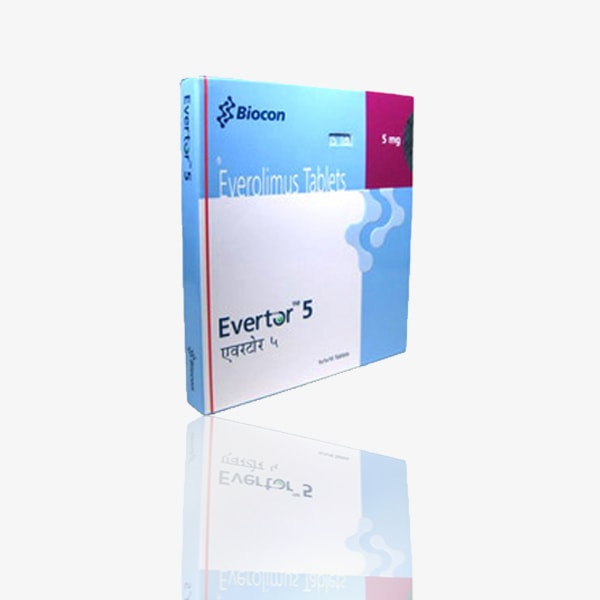


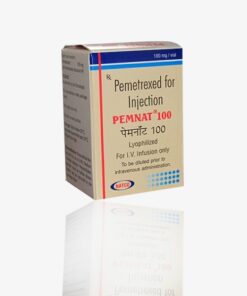

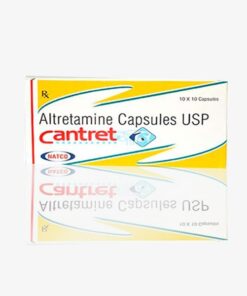
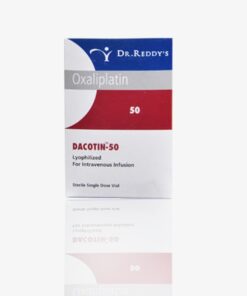
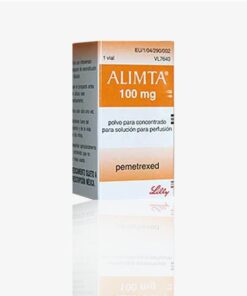
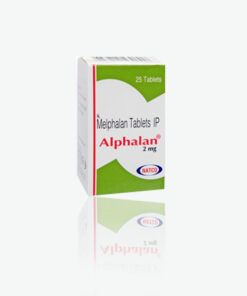
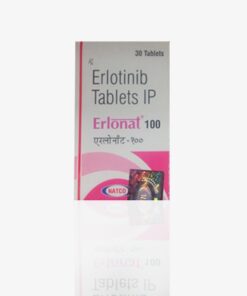
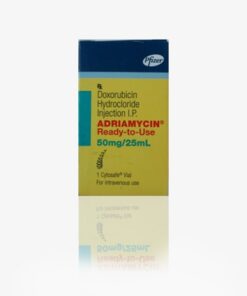
Reviews
There are no reviews yet.